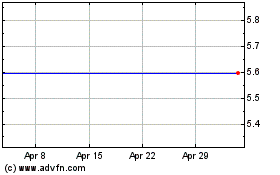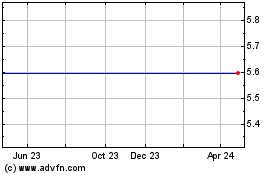AMAG Pharmaceuticals, Inc. (NASDAQ:AMAG) today announced that the
U.S. Food and Drug Administration (FDA) accepted the supplemental
new drug application (sNDA) for the Makena® subcutaneous
auto-injector, a drug-device combination product. The agency has
established a Prescription Drug User Fee Act
(PDUFA) target action date of February 14,
2018. The FDA acknowledged that it had
previously communicated a 6-month review to the company
for this sNDA, but it has now determined that the filing is subject
to a standard 10-month review.
“The FDA’s acceptance of our Makena subcutaneous auto-injector
sNDA filing is an important milestone for this product and for
pregnant women who have experienced a prior singleton, spontaneous
preterm birth,” said Julie Krop, MD, chief medical officer and
senior vice president of clinical development and regulatory
affairs at AMAG. “We believe that, if approved, this drug-device
combination product can help meet the needs of providers by
offering the convenience of a ready-to-administer subcutaneous
auto-injector while providing patients with an alternative option
to an intramuscular injection.”
The current Makena intramuscular injection is the only
FDA-approved treatment indicated to reduce the risk of preterm
birth in women who are pregnant with one baby and who spontaneously
delivered one preterm baby in the past. AMAG developed the Makena
auto-injector with its device partner Antares Pharma, Inc.
(NASDAQ:ATRS), which holds issued patents on the auto-injector
device. If the Makena auto-injector is approved, AMAG will request
Orange Book listing of the eligible Antares patents, the last of
which expires in 2026.
”We are progressing our plans to bring the Makena subcutaneous
auto-injector to market as well as refining our plans to address
any potential future competitive threats to the Makena franchise.
Our market research indicates that physicians would prescribe the
subcutaneous auto-injector form of Makena when available to more
than 80% of their patients," said Nik Grund, chief commercial
officer of AMAG. "Today we are continuing to focus our efforts on
helping more at-risk women get treated with Makena, and we are
reaffirming our 2017 financial guidance, including Makena revenue
guidance of $410 million to $440 million."
About Makena® (hydroxyprogesterone caproate injection)
Intramuscular Injection Makena® is a progestin indicated
to reduce the risk of preterm birth in women pregnant with a single
baby who have a history of singleton spontaneous preterm birth.
The effectiveness of Makena is based on improvement in the
proportion of women who delivered <37 weeks of gestation. There
are no controlled trials demonstrating a direct clinical benefit,
such as improvement in neonatal mortality and morbidity.
Limitation of use: While there are many risk factors for preterm
birth, safety and efficacy of Makena has been demonstrated only in
women with a prior spontaneous singleton preterm birth. It is not
intended for use in women with multiple gestations or other risk
factors for preterm birth.
Makena should not be used in women with any of the following
conditions: blood clots or other blood clotting problems, breast
cancer or other hormone-sensitive cancers, or history of these
conditions; unusual vaginal bleeding not related to the current
pregnancy, yellowing of the skin due to liver problems during
pregnancy, liver problems, including liver tumors, or uncontrolled
high blood pressure. Before patients receive Makena, they should
tell their healthcare provider if they have an allergy to
hydroxyprogesterone caproate, castor oil, or any of the other
ingredients in Makena; diabetes or prediabetes, epilepsy, migraine
headaches, asthma, heart problems, kidney problems, depression, or
high blood pressure.
In one clinical study, certain complications or events
associated with pregnancy occurred more often in women who received
Makena. These included miscarriage (pregnancy loss before 20 weeks
of pregnancy), stillbirth (fetal death occurring during or after
the 20th week of pregnancy), hospital admission for preterm labor,
preeclampsia (high blood pressure and too much protein in the
urine), gestational hypertension (high blood pressure caused by
pregnancy), gestational diabetes, and oligohydramnios (low amniotic
fluid levels).
Makena may cause serious side effects including blood clots,
allergic reactions, depression, and yellowing of the skin and the
whites of the eyes. The most common side effects of Makena include
injection site reactions (pain, swelling, itching, bruising, or a
hard bump), hives, itching, nausea, and diarrhea.
For additional product information, including full prescribing
information, please visit www.makena.com.
About AMAGAMAG is a biopharmaceutical company
focused on developing and delivering important therapeutics,
conducting clinical research in areas of unmet need and creating
education and support programs for the patients and families we
serve. Our currently marketed products support the health of
patients in the areas of maternal and women’s health, anemia
management and cancer supportive care. Through CBR®, we also help
families to preserve newborn stem cells, which are used today in
transplant medicine for certain cancers and blood, immune and
metabolic disorders, and have the potential to play a valuable role
in the ongoing development of regenerative medicine. For additional
company information, please
visit www.amagpharma.com.
Forward-Looking StatementsThis press release
contains forward-looking information about AMAG
Pharmaceuticals, Inc. within the meaning of the Private
Securities Litigation Reform Act of 1995 and other federal
securities laws. Any statements contained herein which do not
describe historical facts, including, among others, AMAG’s beliefs
that, if approved, the Makena auto-injector has the potential to
meet the needs of providers by offering the convenience of a
ready-to-administer subcutaneous auto-injector while providing
patients with an alternative option to an intramuscular
injection; the ability to list eligible auto-injector patents
in the Orange Book; AMAG’s ability to bring the Makena subcutaneous
auto-injector to market and to address potential future competitive
threats to the Makena franchise; expectations that physicians might
prescribe the auto-injector form of Makena when available to more
than 80% of their patients; AMAG’s ability to help more at-risk
women get treated with Makena; expectations for 2017 revenue
guidance, including Makena revenue guidance and beliefs that
newborn stem cells have the potential to play a valuable role in
the development of regenerative medicine are forward-looking
statements which involve risks and uncertainties that could cause
actual results to differ materially from those discussed in such
forward-looking statements.
Such risks and uncertainties include, among others, those risks
identified in AMAG’s filings with the U.S. Securities and
Exchange Commission (SEC), including its Annual Report on Form
10-K for the year ended December 31, 2016 and subsequent
filings with the SEC. Any such risks and uncertainties could
materially and adversely affect AMAG’s results of operations, its
profitability and its cash flows, which would, in turn, have a
significant and adverse impact on AMAG’s stock price. AMAG cautions
you not to place undue reliance on any forward-looking statements,
which speak only as of the date they are made.
AMAG disclaims any obligation to publicly update or revise any
such statements to reflect any change in expectations or in events,
conditions or circumstances on which any such statements may be
based, or that may affect the likelihood that actual results will
differ from those set forth in the forward-looking statements.
AMAG Pharmaceuticals® is a registered trademark
of AMAG Pharmaceuticals, Inc. Makena® is a registered
trademark of AMAG Pharmaceuticals IP, Ltd. CBR® is a
registered trademark of CBR Systems, Inc.
AMAG Pharmaceuticals, Inc. Contacts:
Investors:
Linda Lennox
Vice President, Investor Relations
908-627-3424
Media:
Rushmie Nofsinger
Executive Director, Corporate Communications
617-498-3332
Antares Pharma (NASDAQ:ATRS)
Historical Stock Chart
From Oct 2024 to Nov 2024

Antares Pharma (NASDAQ:ATRS)
Historical Stock Chart
From Nov 2023 to Nov 2024
